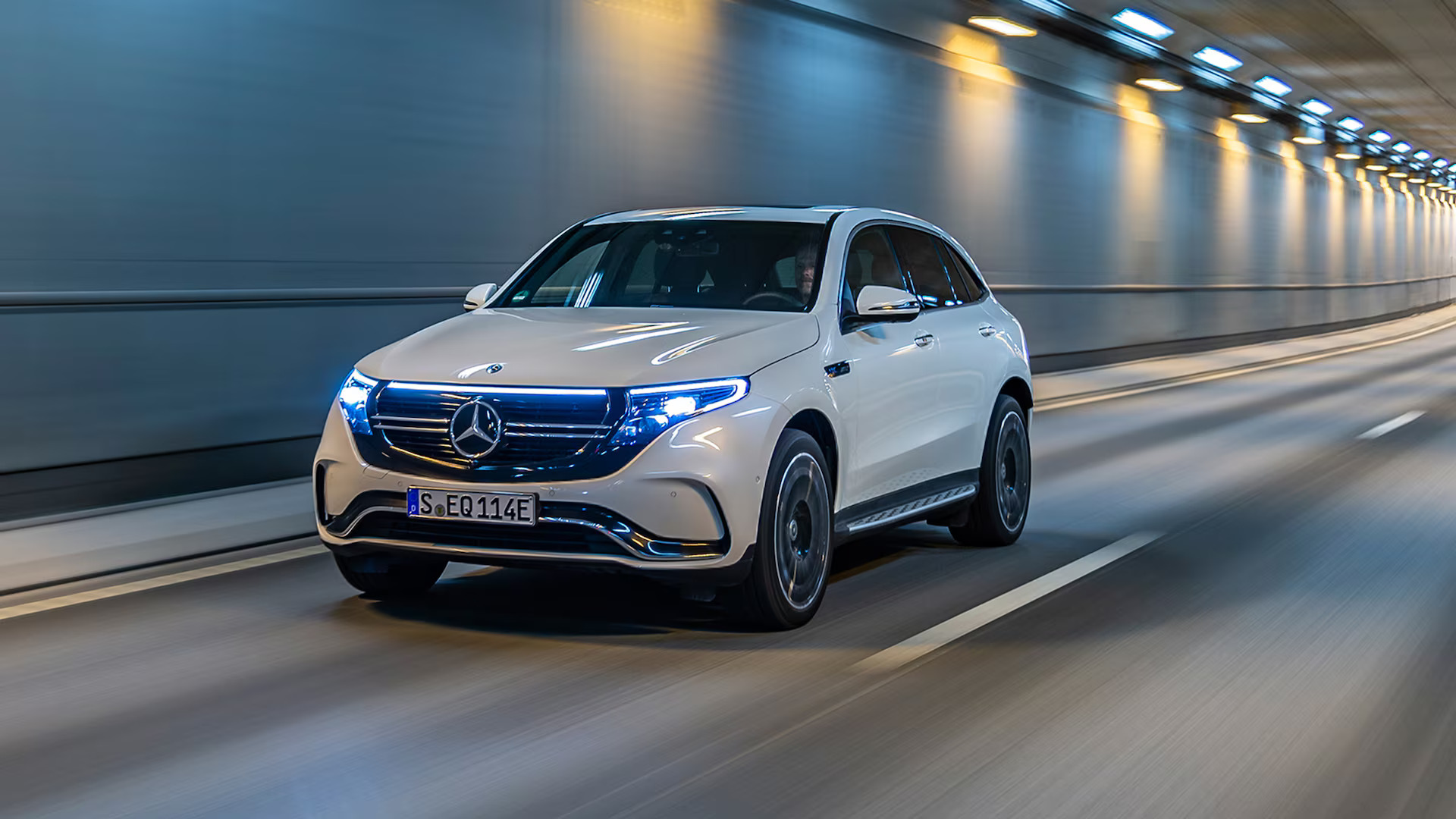As the electric vehicle (EV) market continues its rapid expansion, artificial intelligence (AI) plays a crucial role in revolutionizing the industry. By enhancing safety systems and improving driving efficiency, AI integration in EVs is reshaping the way we experience vehicles. Manufacturers are leveraging AI to introduce cutting-edge advancements, making EVs not only more sustainable but also smarter and more user-friendly. This overview explores the sophisticated AI features embedded in ten outstanding EV models, showcasing their distinctive contributions to the automotive world.
AI’s role in EVs goes beyond basic automation; it brings adaptive learning, intelligent decision-making, and personalized experiences to drivers. These features set the stage for a new era of connectivity, safety, and eco-conscious transportation. Let us explore how AI is shaping the journey of these electric vehicles.
1. Audi e-Tron
The Audi e-Tron, a mid-size luxury all-electric SUV, exemplifies Audi’s dedication to innovation and sustainability. Its Predictive Efficiency Assistant leverages GPS data, cameras, and sensors to optimize driving style, improving efficiency. The AI-powered adaptive cruise control dynamically adjusts the car’s speed based on traffic conditions, ensuring smooth navigation even in stop-and-go situations.
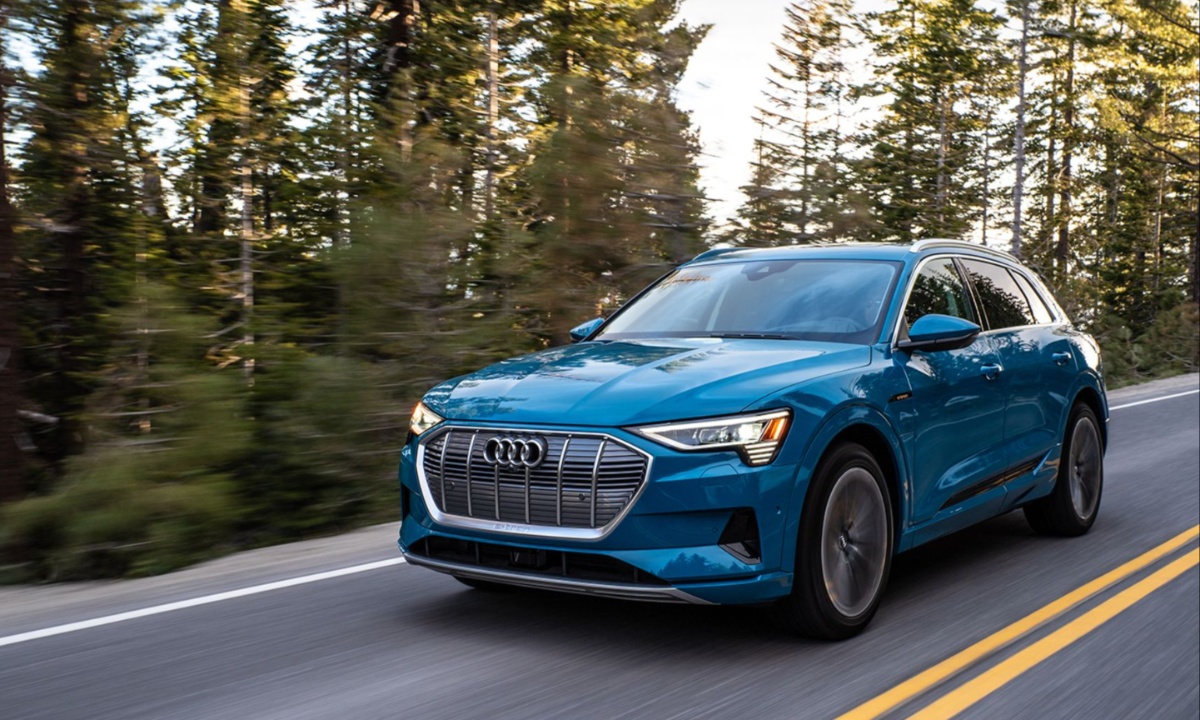
The Virtual Cockpit adapts to the driver’s preferences, providing tailored information displays, while the AI-driven voice recognition system facilitates hands-free control. Additionally, features like driver assistance systems, including lane departure warnings and emergency braking, ensure enhanced safety on the road. The Audi e-Tron showcases how AI technology can merge luxury with functionality.
2. Ford Mustang Mach-E
The Ford Mustang Mach-E combines iconic design with state-of-the-art AI technology. Its Intelligent Range system adapts range estimations based on driving habits, weather, and traffic, ensuring drivers are never caught unprepared. The Ford Co-Pilot360 suite includes adaptive cruise control and lane-centering assistance, all powered by AI for improved driving confidence.
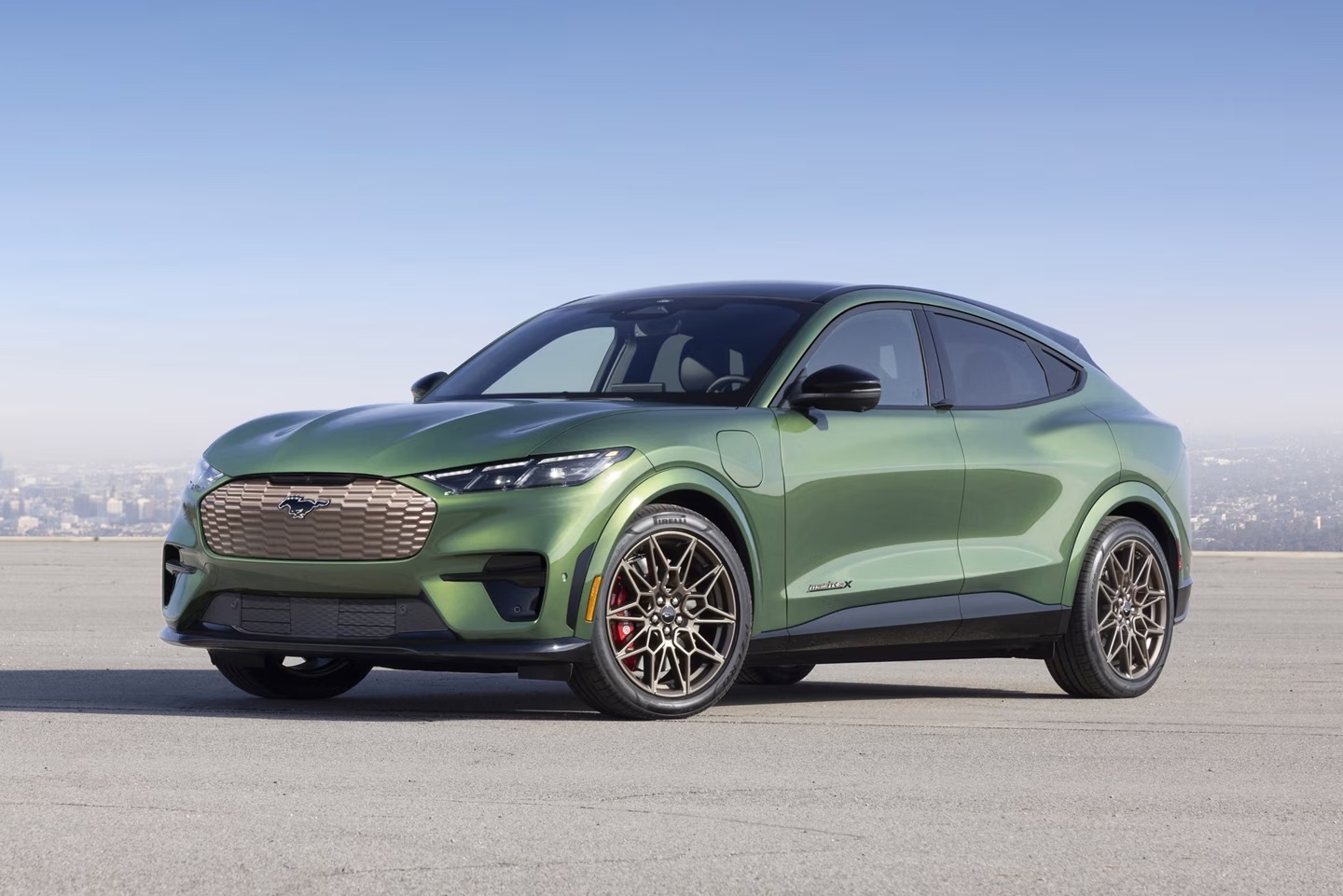
The Next-Generation SYNC infotainment system uses machine learning to deliver personalized experiences, while the innovative Phone As A Key feature uses AI for secure authentication, replacing traditional keys. The AI-driven Active Park Assist 2.0 automates parking, reflecting the Mach-E’s futuristic capabilities.
3. Tesla Model S
The Tesla Model S is a luxury electric sedan that stands at the forefront of AI-driven automotive technology. Its Autopilot feature employs cameras, radar, and ultrasonic sensors to handle tasks like lane keeping, adaptive cruise control, and self-parking. A neural network embedded within the car continually learns from driving data, improving decision-making.
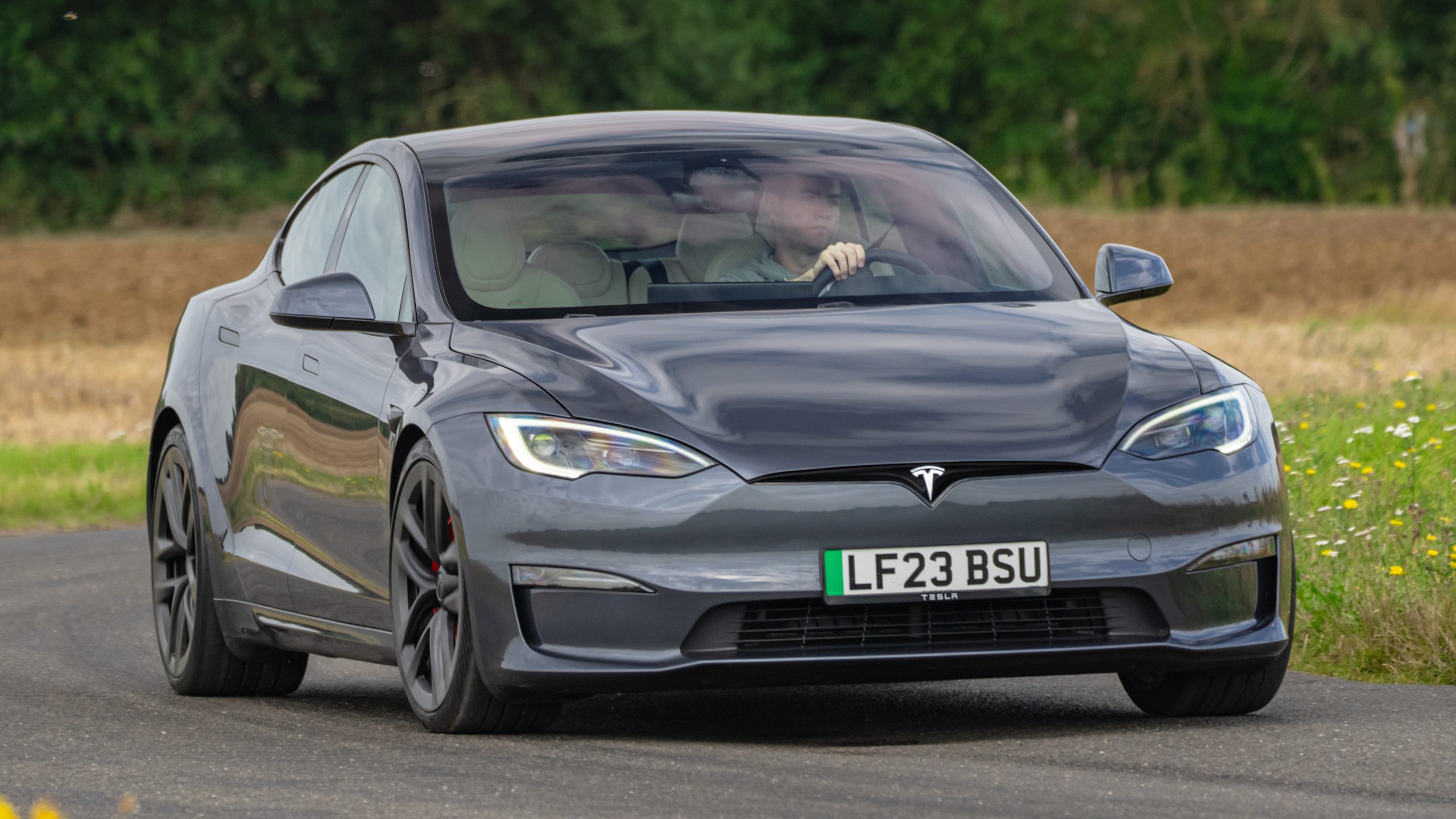
The Smart Air Suspension adjusts ride height using real-time AI analysis, ensuring a smoother drive. The integrated AI-based navigation system suggests optimal routes based on traffic and charging station availability. Moreover, the Tesla app offers remote vehicle control, bringing AI-driven convenience to the driver’s fingertips.
4. Nissan Leaf
The Nissan Leaf focuses on affordability and practicality, integrating AI features to enhance daily commuting. Its ProPILOT Assist maintains safe distances from other vehicles and ensures lane centering, adapting to traffic patterns using machine learning. The e-Pedal system revolutionizes driving by enabling acceleration and deceleration with a single pedal.
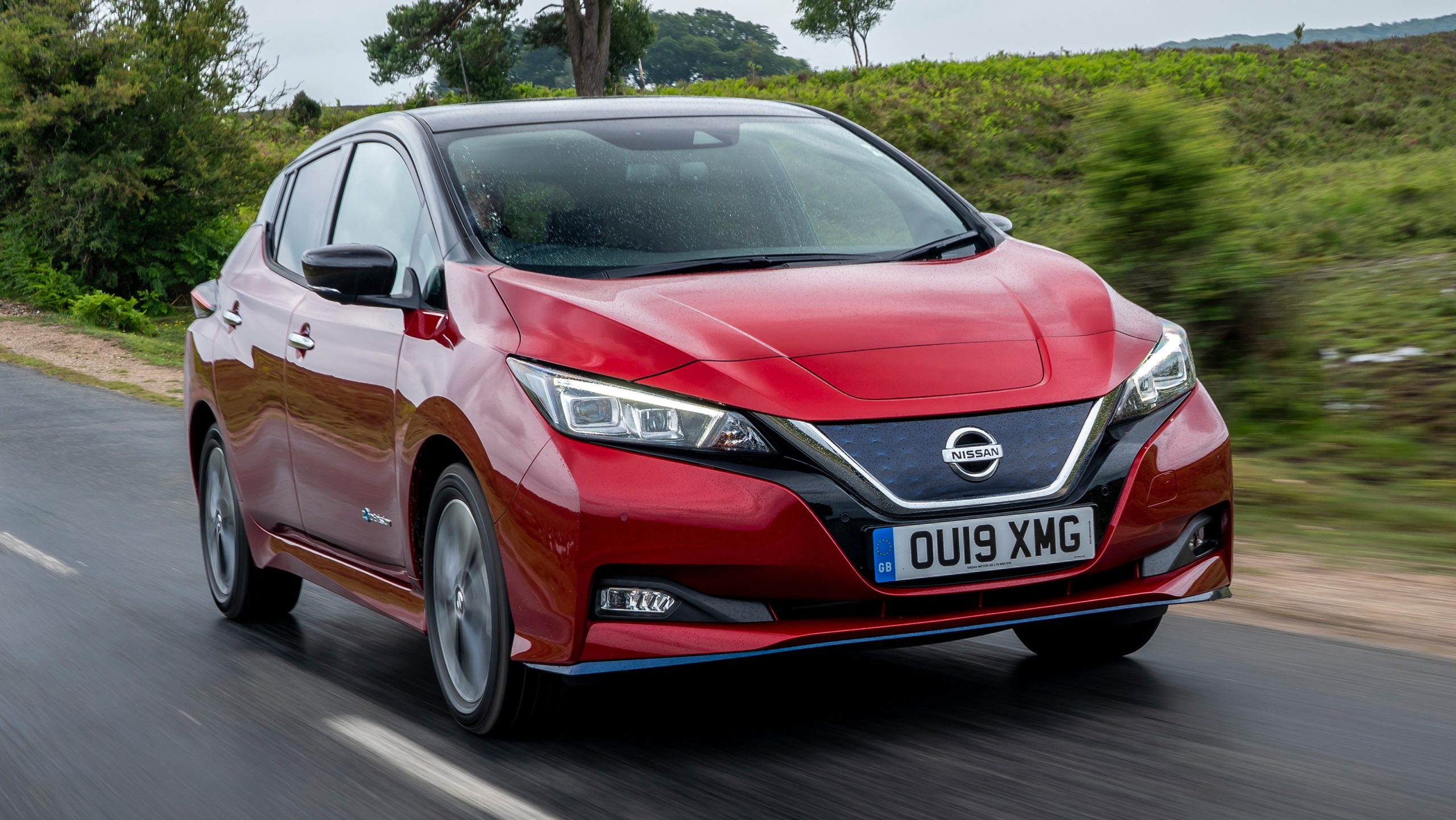
The AI-powered NissanConnect infotainment system provides real-time updates and voice-controlled functions, while the Intelligent Around View Monitor offers a 360-degree perspective, detecting obstacles for safer parking. These technologies make the Nissan Leaf an accessible yet intelligent option for eco-conscious drivers.
5. BMW i3
The compact BMW i3 stands out for its eco-friendly design and AI-powered features. The iDrive Infotainment System integrates natural language voice recognition, enabling hands-free control of vehicle functions. The Intelligent Navigation adapts to real-time traffic, personalizing routes based on driving habits.
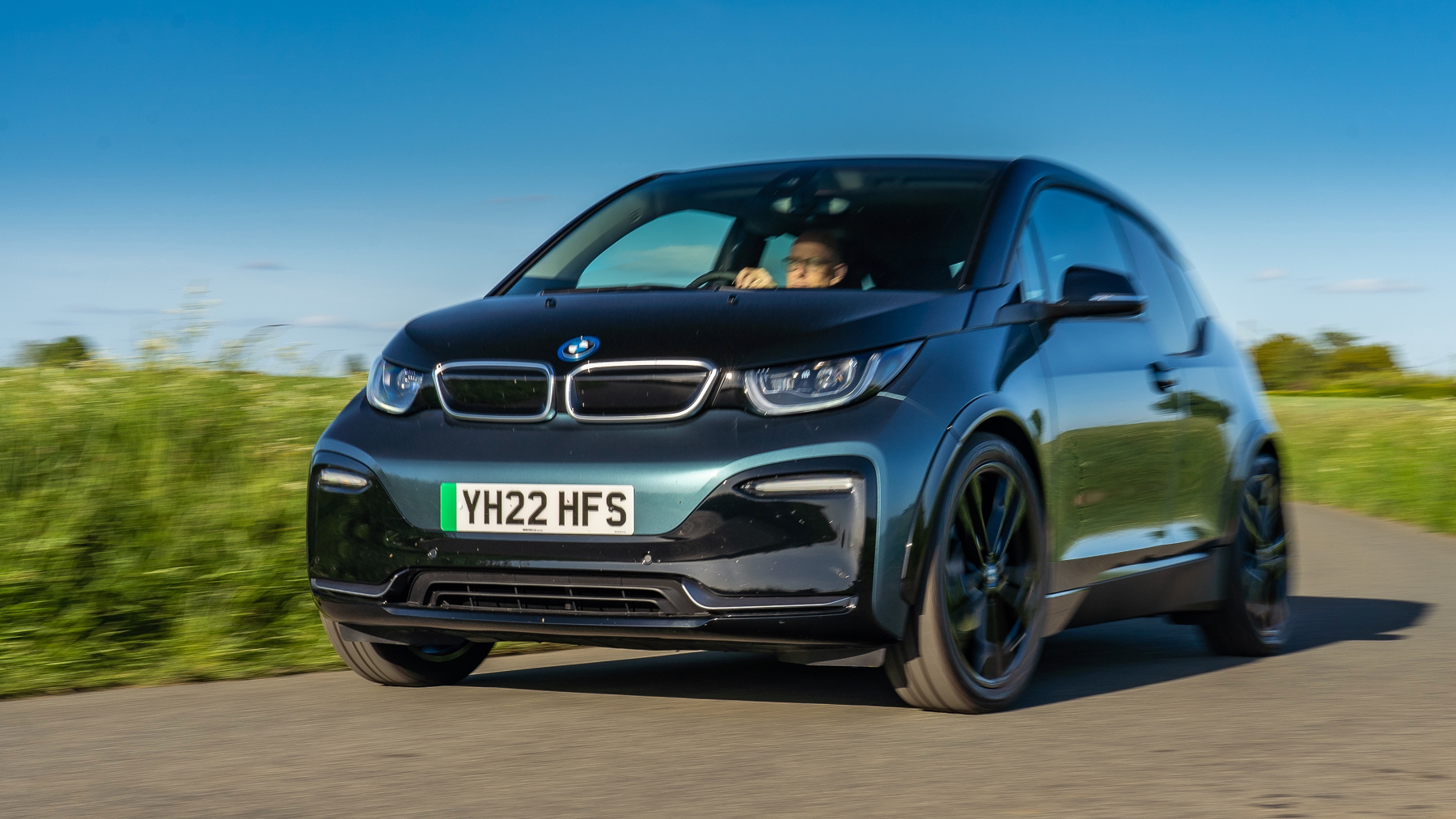
Safety-focused driver assistance systems utilize AI for adaptive cruise control and lane departure alerts, ensuring a secure drive. The car’s battery management system optimizes energy use, extending its range. Compact yet innovative, the i3 proves that size doesn’t limit AI’s impact.
6. Jaguar I-PACE
Jaguar’s I-PACE combines luxury with high-performance AI-driven features. Its 3D Surround Camera enhances parking and navigation with a 360-degree view. The Smart Settings function learns driver preferences, adjusting settings for optimal comfort and convenience.
The Navigation Pro system uses AI to provide real-time traffic updates and preferred route suggestions. Additionally, Adaptive Cruise Control with Steering Assist maintains lane positioning and safe distances, while the Driver Condition Monitor alerts drivers to signs of fatigue, ensuring a safer journey.
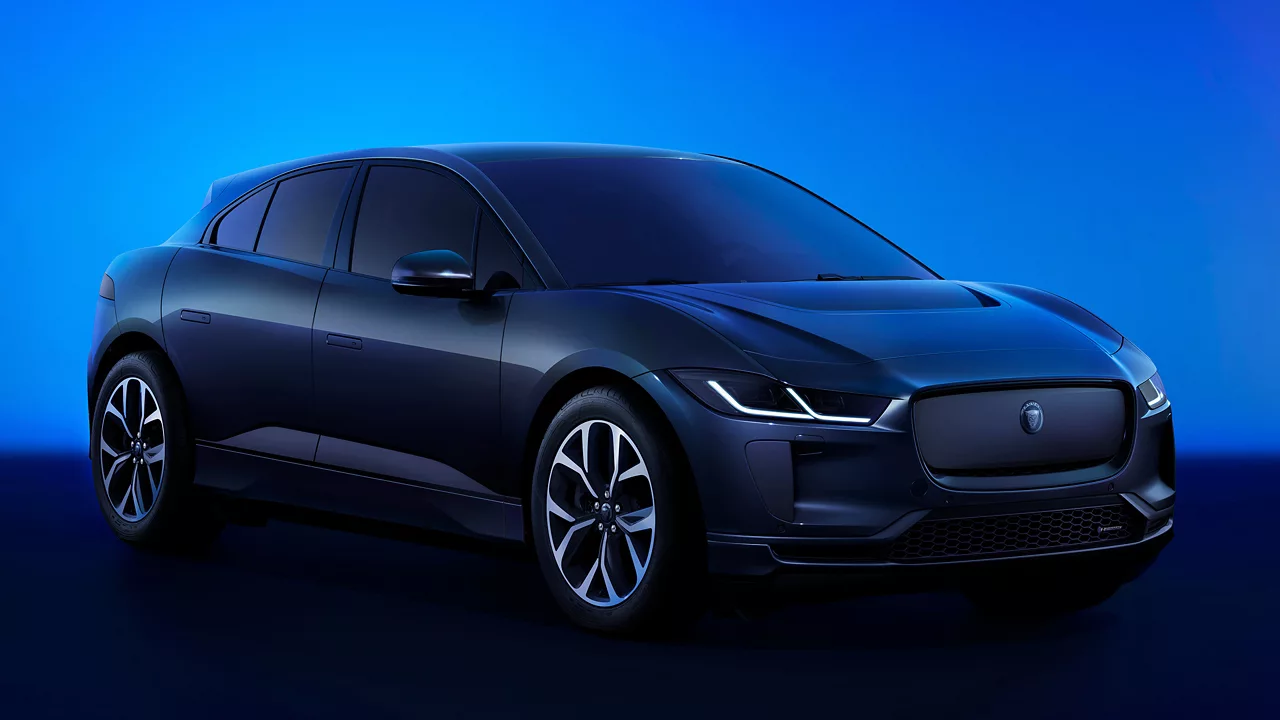
7. Polestar 2
Polestar 2 blends minimalistic design with cutting-edge AI technologies. Its integration with Google Assistant allows voice commands for seamless control of climate, music, and navigation. The Pilot Assist feature ensures semi-autonomous driving, maintaining lane positioning and safe distances.
Driver Awareness Monitoring analyzes behavior for signs of distraction, while over-the-air updates keep the car’s software current. Polestar 2’s AI-enhanced Predictive Weather system provides route-specific forecasts, helping drivers avoid unfavorable conditions.
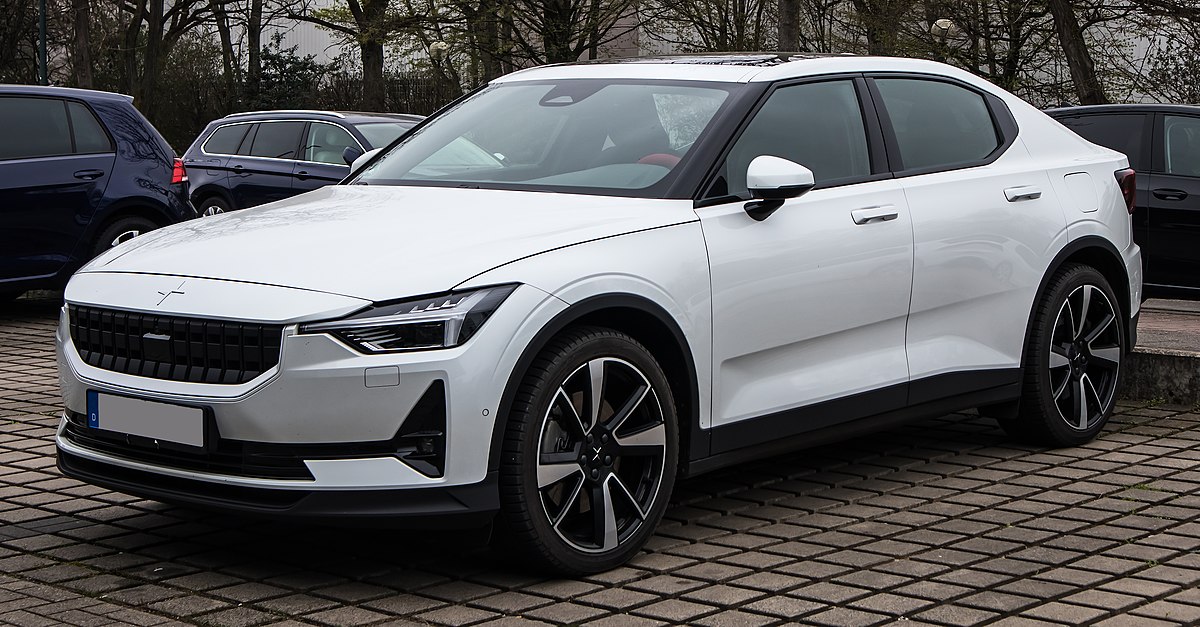
8. Chevrolet Bolt
The Chevrolet Bolt offers practical AI features for urban commuting. The Regen on Demand system uses AI to optimize regenerative braking, recharging the battery while reducing wear on brakes. Its One Pedal Driving allows for acceleration and deceleration using a single pedal, tailored to driving conditions.
The Surround Vision system, supported by AI, provides a comprehensive view of the car’s surroundings, enhancing safety. Additional features like Automatic Emergency Braking and Lane Keep Assist demonstrate the Bolt’s commitment to safety and efficiency.
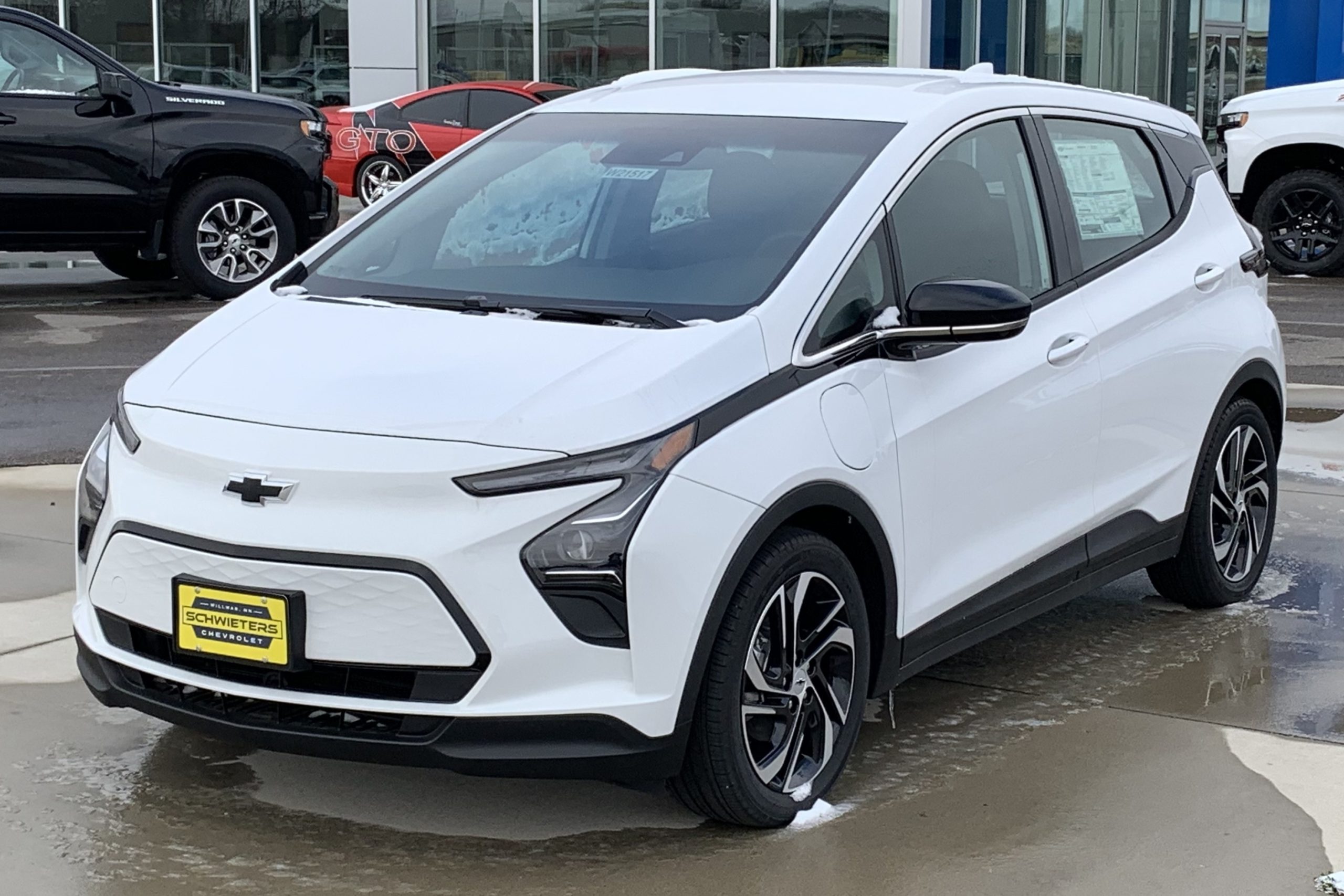
9. Hyundai Kona Electric
The Hyundai Kona Electric uses AI to enhance driving safety and convenience. Its Smart Cruise Control with Stop & Go adjusts smoothly to traffic conditions. The BlueLink Connected Car Services provide AI-powered remote controls and updates on the vehicle’s health.
The Driver Attention Warning system detects signs of fatigue, issuing alerts to promote safer driving. Other features, such as Rear Cross-Traffic Collision Warning and Lane Keeping Assist, use AI to anticipate and prevent potential accidents.
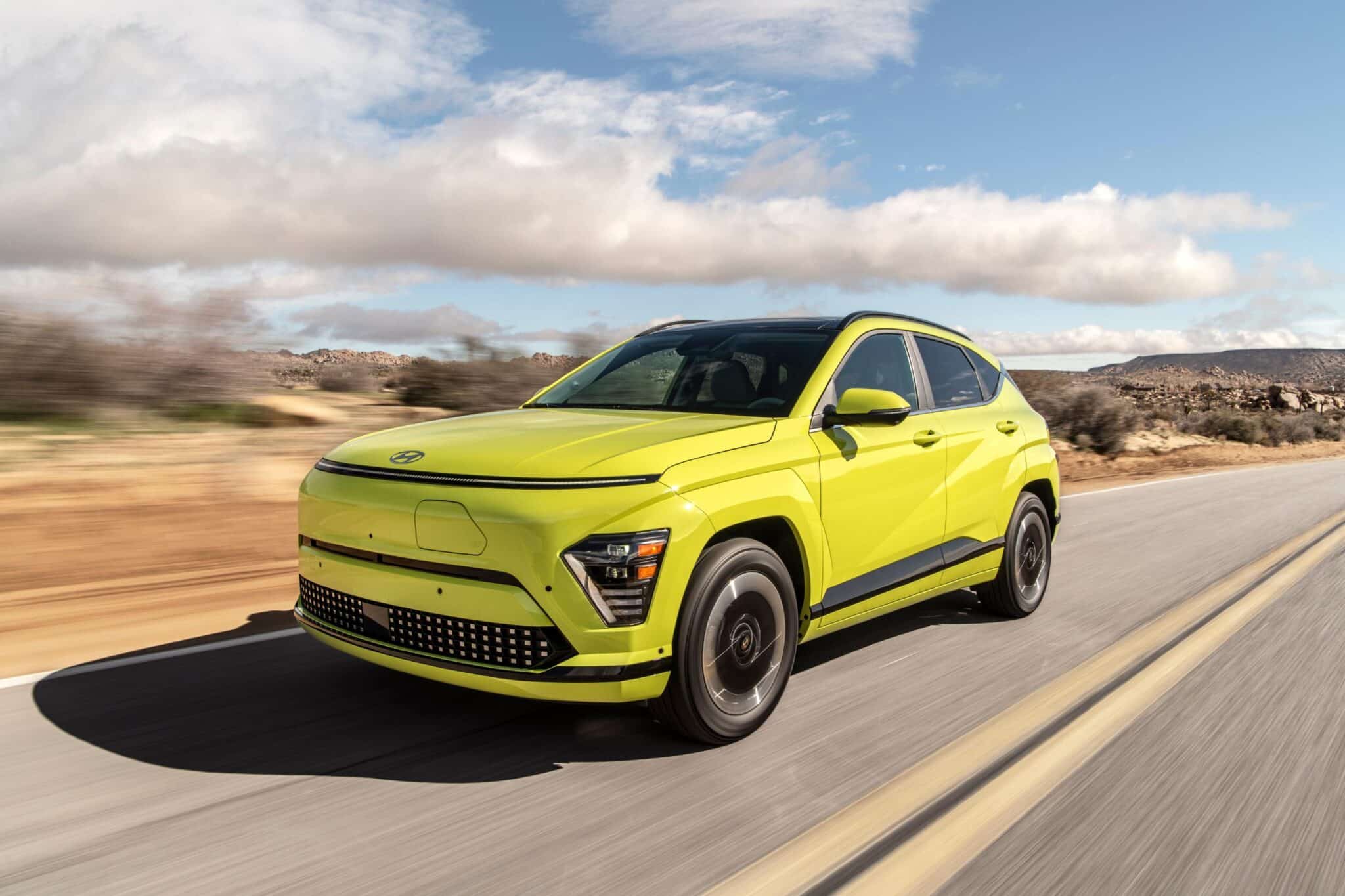
10. Mercedes-Benz EQC
The luxurious Mercedes-Benz EQC showcases AI’s role in enhancing the driver experience. Adaptive Cruise Control and Active Lane Change Assist utilizes AI for responsive driving. Its Predictive Navigation optimizes efficiency by analyzing route conditions, while Traffic Sign Assist alerts drivers to speed limits and hazards.
AI-driven Active Brake Assist enhances safety by mitigating collision risks. The EQC epitomizes how AI can combine luxury with practical functionality in EVs.
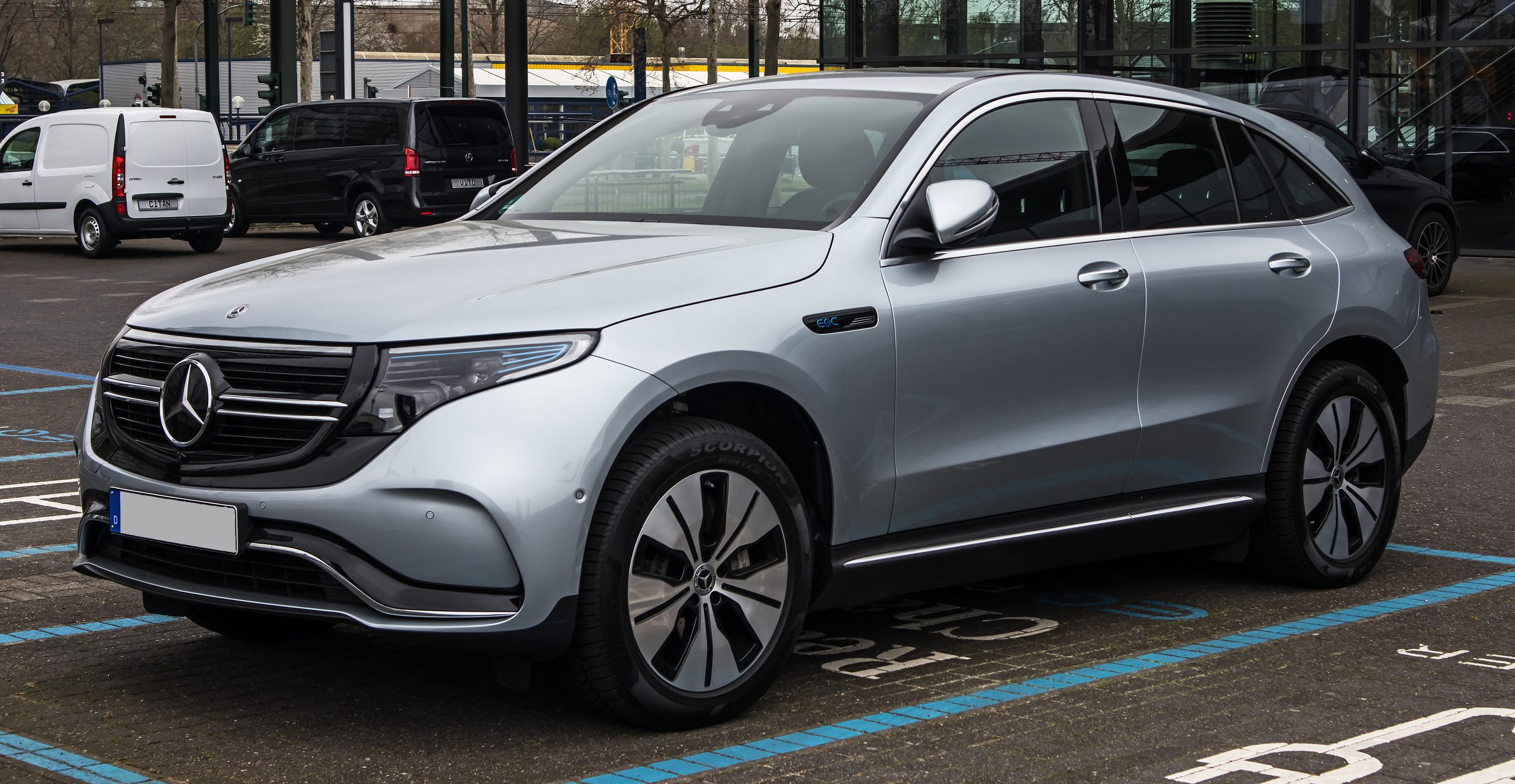
Artificial intelligence is a transformative force in the EV industry, enabling smarter, safer, and more efficient vehicles. From luxury sedans to compact hatchbacks, the integration of AI in these ten cars demonstrates its potential to revolutionize transportation. As technology evolves, we can anticipate even more sophisticated applications in EVs, pushing the boundaries of innovation and sustainability. Through AI, the dream of intelligent, low-carbon mobility is becoming a reality.

